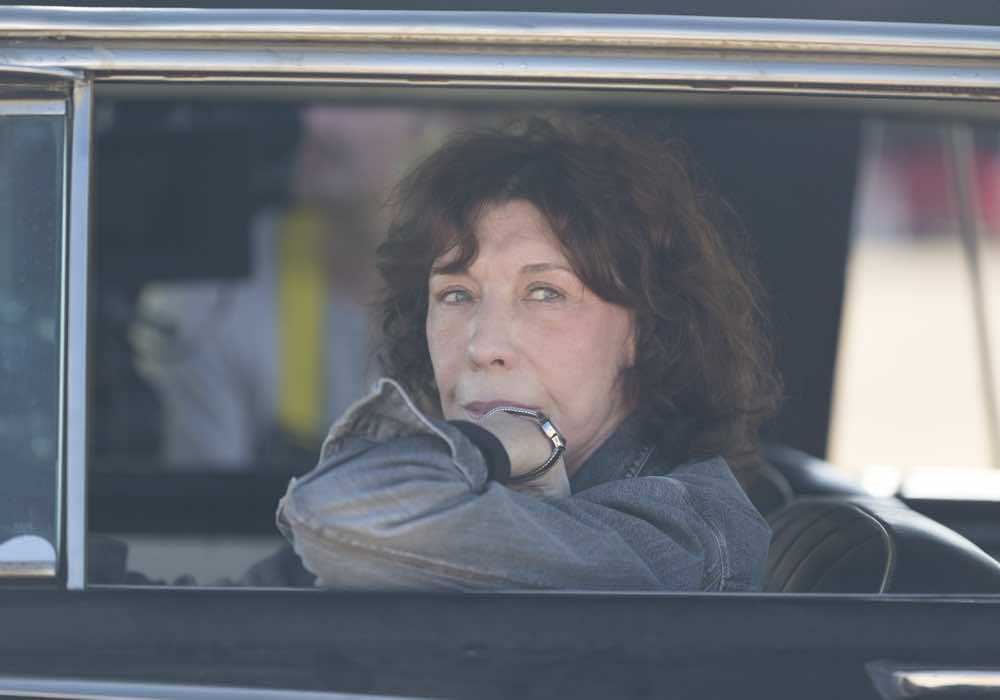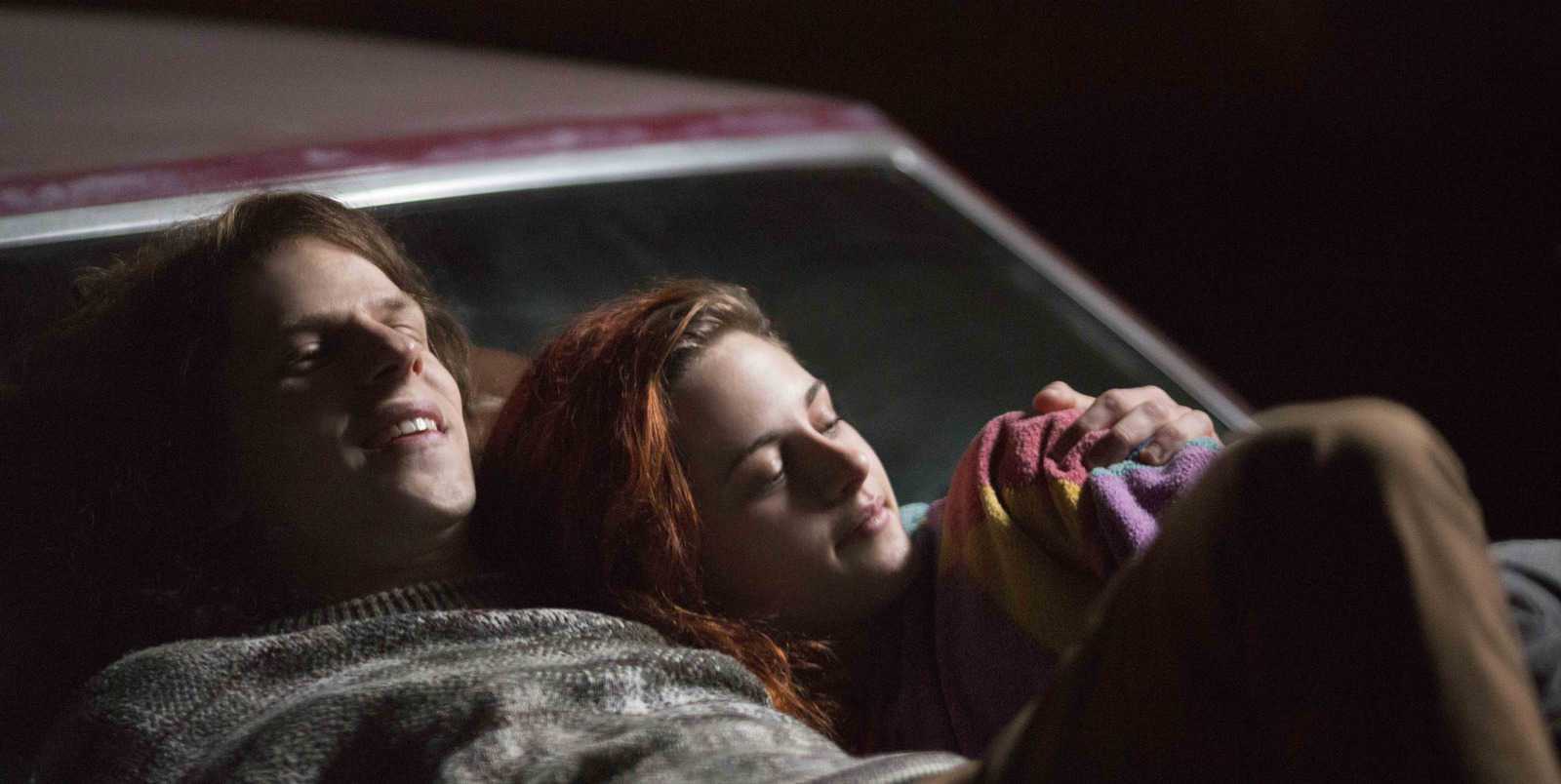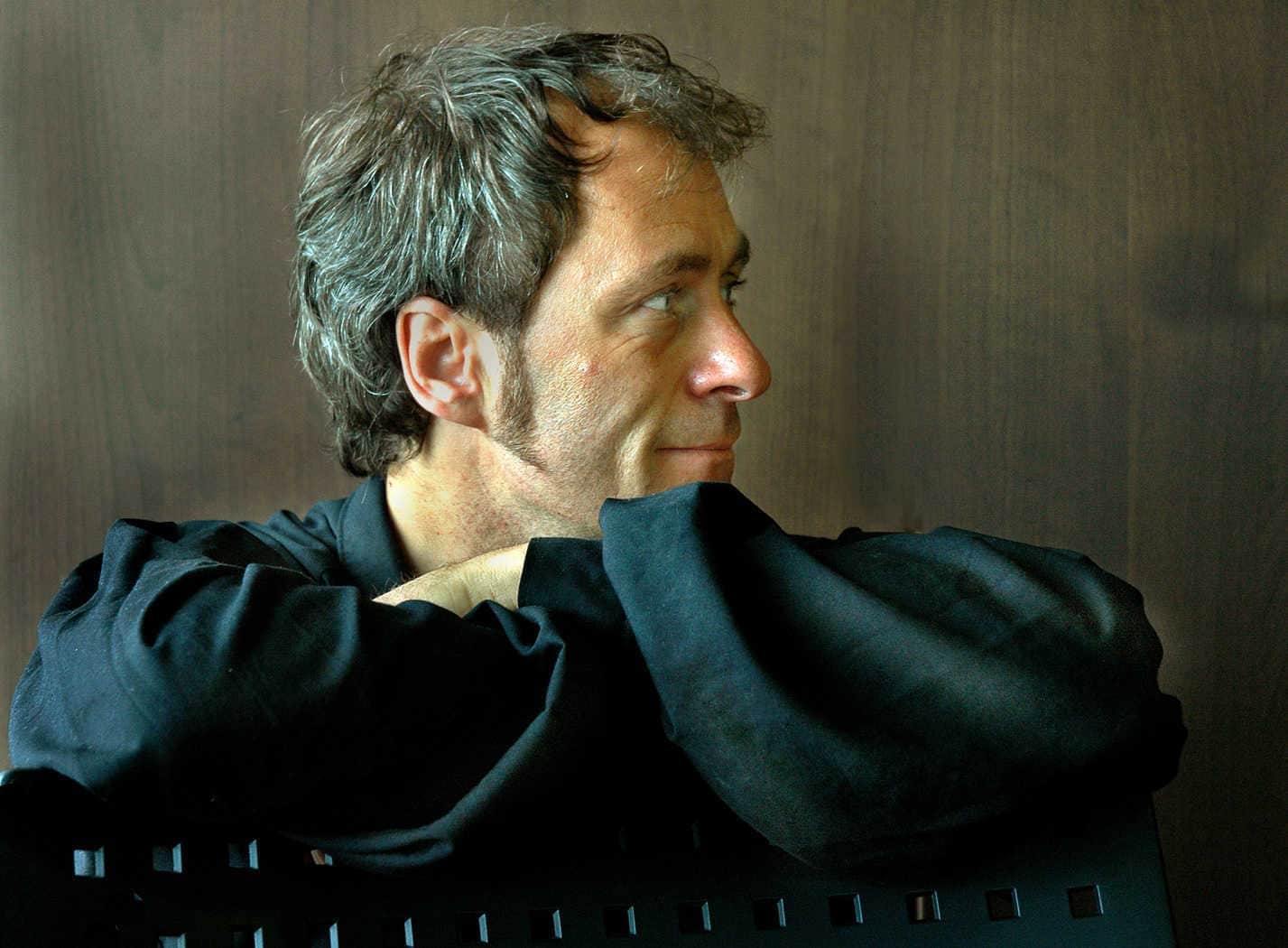
In Paul Weitz’s Grandma, Lily Tomlin plays misanthropic widow Elle who embarks on a whirlwind tour of the past in a single day when her granddaughter Sage (Julia Garner) arrives on her doorstep pregnant, broke, and in need of an abortion. Having broken up with her girlfriend (Judy Greer) that morning by refusing to express her clearly deep feelings and recently destroyed all of her credit cards to prove a point, Elle, too is broke. So they hatch a plan to acquire the $600 needed to pay for the procedure that Sage has scheduled for that afternoon.
Because Elle has alienated herself from pretty much everyone with her unfiltered, nasty remarks, it’s fairly desperate times. But mostly, it’s a painfully obvious script contrivance to allow us a tour down memory lane, offering backstory in neon lights so we can understand why helping her granddaughter, whom she rarely talks to, suddenly becomes so important.
Tomlin is terrific here as a woman clearly living with pain and whose reflex is to lash out. As the film’s only remotely developed character, she gets all the best lines, and there’s plenty of funny one-liners even if they’re clearly shoehorned in. But it’s a shame that she doesn’t have a single interesting character to play against, even though Greer provides some much-needed warmth and Marcia Gay Harden, as Elle’s daughter, makes even the lame lines she’s given sing. Sage is nothing more than a plot device on legs, a MacGuffin to force Elle to contend with her past and her need to stop pushing people away. Her sole purpose is to be the straight woman to Tomlin’s kooky older lady and to occasionally spout self-hating bullshit so that Elle can shut her down and prove just how liberal she is. Where Sage gets this misogynistic nonsense, though, is a total mystery.

Almost in spite of itself, the film eventually finds some moving moments when all three women are in the same room together. Harden switches seamlessly from a hard-ass scary business woman who can’t help but yell at her daughter for her mistake, in one scene, to a concerned mother worrying about her daughter the next. Though she gets no help from Paul Weitz’s dialogue, Harden finds the humanity in this change-around, showing us that she and her estranged mother are not so different, after all, even if we have no sense of why either of them have such deep-seated anger. Despite the film’s liberal values, we still have to listen to Harden’s character wonder what she did wrong to get her daughter into this situation, instead of just accepting that abortions are fairly common and not something that should be shameful. Weitz could learn a thing or two from Obvious Child.
These final scenes pack a dramatic punch in part because it’s the first time in the film that we actually get two-shots and three-shots with all of the actors in frame, relating to and interacting with one another. The rest of the film is an entirely unimaginatively directed melange of indie aesthetic cliches. Director Paul Weitz shoots with a handheld camera, for no obvious reason, never offering us anything more thoughtful to look at than basic coverage: back-to-back closeups, over-the-shoulder shots, with an occasional establishing long shot. Thankfully, Tomlin’s expressive face is always worth watching, even when filmed without imagination.
Read more: Writer-director Rebecca Miller talks Maggie’s Plan >>

